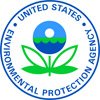EPA Region 7 Issues Emergency Order on Drinking Water Safety at Colonial Acres of Humboldt Nursing Home and Assisted Living Facility in Humboldt, Nebraska
Facility’s ongoing Legionella bacterial contamination may endanger public health

LENEXA, KAN. (MAY 22, 2024) – On May 20, 2024, the U.S. Environmental Protection Agency (EPA) Region 7 issued an emergency order under the Safe Drinking Water Act to the City of Humboldt, Nebraska, for drinking water at the Colonial Acres of Humboldt Nursing Home and Assisted Living Facility (Colonial Acres).
Colonial Acres has an ongoing Legionella bacterial outbreak in its water system that has resulted in related illnesses and fatalities, with the most recent fatality occurring in March 2024.
Legionella has not been found in Humboldt’s Public Water System outside of Colonial Acres. This order addresses disinfection of water utilized at the Colonial Acres facility and does not require any action by Humboldt residents.
Legionella bacteria can cause sickness and death through two forms of Legionellosis, Pontiac fever and the more severe Legionnaires’ disease, which is a potentially fatal illness involving pneumonia. People and patients in an assisted living facility are at an increased risk for contracting Legionellosis, and also at an increased risk of higher morbidity once contracted.
The emergency drinking water order requires the City of Humboldt to:
- Issue a public notice regarding the potential presence and risk of exposure to Legionella at Colonial Acres.
- Implement mitigation measures at Colonial Acres to protect against the risk of Legionella and provide a description of the steps taken to EPA.
- Install a disinfection treatment system at Colonial Acres that is sufficient to control Legionella contamination.
In fall 2022, the Nebraska Department of Environment and Energy (NDEE) began working with the Nebraska Department of Health and Human Services (DHHS) to address the contamination. Prior to that, as early as 2020, DHHS had been working with Colonial Acres and advised the facility to revise their comprehensive Water Management Plan to include ongoing monitoring; flushing; point-of-use filtration devices; increased water temperature; the use of bottled water; temporary shock chlorination, a drinking water treatment used for bacterial contamination; and other measures to mitigate Legionella risks.
Despite efforts to mitigate the contamination, samples collected in March 2024 showed the presence of Legionella in the water throughout the Colonial Acres facility. There is currently no routine disinfection treatment of water used at the facility.
Upon learning about the Legionella contamination at Colonial Acres, EPA Region 7 initiated enforcement to address the contamination at the facility.
Following EPA Region 7’s enforcement action, on May 21, 2024, the Humboldt City Council approved and initiated actions to procure equipment for the installation of a water disinfection system at Colonial Acres. The city must coordinate with NDEE to ensure that the system meets the state’s specifications.
EPA Region 7 will continue immediate work with the City of Humboldt, NDEE, and DHHS to resolve the ongoing contamination issues at Colonial Acres.
Colonial Acres
The City of Humboldt owns Colonial Acres and provides the water supply and service connections to the facility, which has a 49-bed, long-term care unit and 16 assisted living apartments. Colonial Acres also provides in-patient and out-patient physical, occupational, respiratory, and speech therapy.
Legionella Bacteria
Legionella can adversely impact public health. The U.S. Centers for Disease Control and Prevention (CDC) estimates that 8,000 to 18,000 people are hospitalized with Legionnaires’ disease each year in the U.S.
Legionella bacteria are found naturally in the environment worldwide, usually in aquatic environments. The bacteria also occur in distribution systems and premise plumbing. The bacteria can be transported from water to the air by faucets, shower heads, cooling towers, HVAC systems, and nebulizers. Thus, drinking water contaminated by Legionella bacteria poses risks of exposure through showering, bathing, cooking, and respiratory therapy.
In March 2001, EPA issued a Drinking Water Health Advisory for Legionella. Health Advisories offer technical assistance to public health officials, but are not enforceable federal standards.
For More Information
EPA has established the Safe Drinking Water Hotline, a toll-free number for further information on drinking water quality, treatment technologies, and for obtaining Health Advisories or other regulatory information.
- EPA’s Safe Drinking Water Hotline: 800-426-4791, 9 a.m. to 5:30 p.m. (Eastern time), Monday-Friday (excluding holidays)
The Nebraska Department of Environment and Energy (NDEE) can be reached at 402-471-2186 or [email protected].
The Nebraska Department of Health and Human Services (DHHS) can be reached at 402-471-3121.
# # #
Learn more about EPA Region 7
View all Region 7 news releases
Connect with EPA Region 7 on Facebook and Instagram
Follow us on X: @EPARegion7
